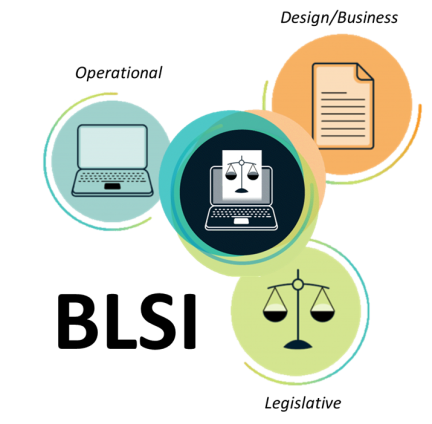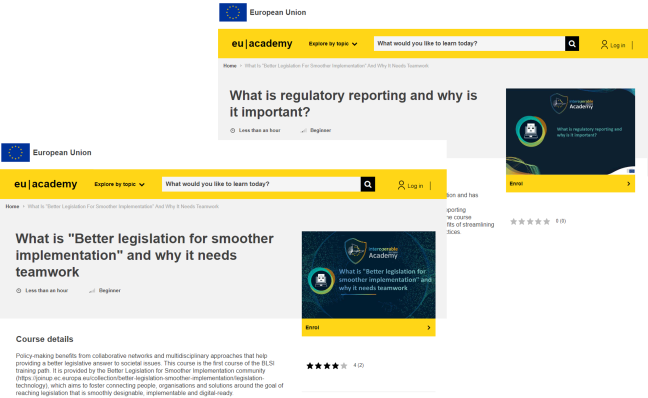
Legal interoperability is one of the four interoperability layers applicable to all digital public services. Its goal is to ensure that organisations operating under different legal frameworks, policies and strategies are able to work together. This requires for legislation not to be an obstacle in the establishment of European public services within and between Member States and that there are clear agreements about how to deal with differences in legislation across borders, including the option of putting in place new legislation.
To help you in the legal interoperability journey, the Interoperable Europe Academy (IOPEU Academy) has delivered two interactive eLearning courses. Both are open to anyone eager to learn about legal interoperability, although they are specially targeted to policymakers, policy officers, service managers and IT officials working in policy-making or in public service delivery within the EU institutions and in governments in general.
Both courses are provided by the Better Legislation for Smoother Implementation (BLSI) community, which aims to foster connecting people, organisations and solutions around the goal of reaching legislation that is smoothly designable, implementable and digital-ready.
Course 1. What is "Better legislation for smoother implementation" and why it needs teamwork |
Course 2. What is regulatory reporting and why is it important |
|
This course is the first course of the BLSI training path. It discusses what is Better Legislation for Smoother Implementation (BLSI) and what elements contribute to achieve it. It stresses the importance of digital aspects of policies early-on in the policy cycle and why it needs teamwork. It also gives an introduction to the BLSI training and highlights the value that different profiles can bring to design digital-ready policies, in a spirit of multidisciplinary policymaking.
|
Following the introductory course, you can deepen your knowledge around BLSI with this online course, which examines what regulatory reporting is, its stages and its importance in ensuring the implementation of EU legislation. It also highlights the benefits and challenges of streamlining this process. Finally, it emphasises the key principles that could gradually lead to a more coordinated approach toward regulatory reporting practices |

Stay tuned for new online trainings around the topic of achieving legal interoperability that will be published this year!
